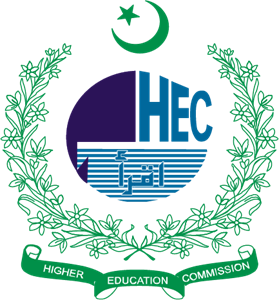Development of Ecotourism for Local Economic Growth in Chotiari Wetland Complex-Sanghar, Sindh Pakistan
Abstract
 Abstract Views: 250
Abstract Views: 250
Tourist organizations, such asSindh Tourism Development Corporation (STDC), Sustainable Development Foundation (SDF), andWorldWide Fund for Nature-Pakistan (WWF-Pakistan), agree that ecotourism has a significant potential to invite both domestic and foreign visitors. Accordingly, ecotourism industry has been promoted as one of the most important tourist industries due to its potential for protecting natural resources, while also improving the socio-economic conditions of local residents. As per thereview of relevant literature, most of the developed and underdeveloped nations utilize their natural assets for tourism and economic upliftment. Thus, the study aimed at determining how ecotourism development adds to the economic growth of local communities of the study region. The research was carried out in Chotiari Wetland Complex,Sindh, Pakistan primarily due to its scenic natural assets. The research sample included officials of local non-governmental organizations (NGOs), local community organizations, the management of Chotiari's Nature Reserve, local leaders, and individuals from local households living inareas surrounding the wetland.A sample of 60 participants was chosen from the communityusing a random sampling methodology. Mixed-methods research, comprising both quantitative and qualitative methodologies,wasused to collect and analyzethe collected data, interpret results, and draw conclusions. A questionnaire survey was used as a toolto collect data. The Statistical Package for the Social Sciences (SPSS version 22) was utilized to evaluate quantitative records, while content interpretation was conductedtoevaluate qualitative information. The findings indicated that ecotourism and wetland developmentimprovedthe local economic growth of the studied region through jobcreation and capacity building.
Keywords: ecotourism,foreign visitors, local economic growth, natural resources, wetland development, WWF-Pakistan
Downloads
References
Anup, K. C. (2017). Ecotourism in Nepal. The Gaze: Journal of Tourism and Hospitality, 8, 1-19.https://doi.org/10.3126/gaze.v8i0.17827
Ashley, C., & Mitchell, J. (2009). Tourism and poverty reduction: Pathways to prosperity. Routledge.
AtifBailey, E., & Richardson, R. (2010). A new economic framework for tourism decision making. Tourism and Hospitality Research, 10(4), 367-376.https://doi.org/10.1057/thr.2010.14
Blangy, S., & Mehta, H. (2006). Ecotourism and ecological restoration. Journal for Nature Conservation, 14(3-4), 233-236.https://doi.org/10.1016/j.jnc.2006.05.009
Coria, J., & Calfucura, E. (2012). Ecotourism and the development of indigenous communities: The good, the bad, and the ugly. Ecological Economics, 73, 47-55.https://doi.org/10.1016/j.ecolecon.2011.10.024
Fauzel, S., Jaffur, Z. K., & Seetanah, B. (2021). Tourism development and its impact on economic growth in Pakistan. Tourism Planning and Development in South Asia, 117-130.
Jurowski, C., & Gursoy, D. (2004). Distance effects on residents ‘attitudes toward tourism.Annals of Tourism Research, 31(2), 296-312.https://doi.org/10.1016/j.annals.2003.12.005
Ko, D. W., & Stewart, W. P. (2002). A structural equation model of residents’ attitudes for tourism development. Tourism Management,23(5), 521-530.https://doi.org/10.1016/S0261-5177(02)00006-7
Kothari, C. R. (2004). Research methodology: Methods and techniques. New Age International.
Mitsch, W. J., & Gosselink, J. G. (1993). Northern peatlands. Wetlands. Second Edition. Van Nostrand Reinhold, New York, 367-411.
Mshenga, P. M., & Richardson, R. B. (2013). Micro and small enterprise participation in tourism in coastal Kenya. Small Business Economics, 41(3), 667-681.
Muhanna, E. (2007). The contribution of sustainable tourism development in poverty alleviation of local communities in South Africa. Journal of Human Resources in Hospitality & Tourism,6(1), 37-67.https://doi.org/10.1300/J171v06n01_03
Naik, I. U. (1986). Inland fisheries and aquaculture in Pakistan: Review of the progress and new activities. In FAO/IPFC Workshop on Strategies for the management of Fisheries and Aquaculture in Mangrove Ecosystems, Bangkok, Thailand (pp. 23-25).
Nazir, H. (2021). Ecotourim and Architecture: Perspective of Chotiari Wetland Complex-Sindh, Pakistan. Department of Architecture & Planning, NED University of Engineering & Technology, City Campus Maulana Din Muhammad Wafai Road, Karachi, 29, 29-56.
Qureshi, R., Khan, W. A., & Khan, B. A. B. A. R. (2009). Study of vegetation and smooth coated otter in Chotiari wetlands complex Sanghar Sindh, Pakistan. Pakistan Journal of Botany, 41(5), 2507-2516.
Rais, M., Khan, M. Z., Abbass, D., Akber, G., & Nawaz, R. (2011). A qualitative study on wildlife of Chotiari Reservoir, Sanghar, Sindh, Pakistan. Pakistan Journal of Zoology, 43(2), 237-247.
Rais, M., Khan, M. Z., Ghalib, S. A., Nawaz, R., Akbar, G., Islam, S. L., & Begum, A. (2013). Global conservation significance of Chotiari Wetlands Complex, Sangahr, Sindh, Pakistan. The Journal of Animal & Plant Sciences, 23(6), 1609-1617.
Russo, A. P., & Van Der Borg, J. (2002). Planning considerations for cultural tourism: a case study of four European cities. Tourism Management, 23(6), 631-637.https://doi.org/10.1016/S0261-5177(02)00027-4
Snyman, S. (2013). Household spending patterns and flow of ecotourism income into communities around Liwonde National Park, Malawi. Development Southern Africa, 30(4-5), 640-658.
Snyman, S. (2017). The role of private sector ecotourism in local socio-economic development in southern Africa. Journal of Ecotourism, 16(3), 247-268. https://doi.org/10.1080/14724049.2016.1226318
Stem, C. J., Lassoie, J. P., Lee, D. R., Deshler, D. D., & Schelhas, J. W. (2003). Community participation in ecotourism benefits: The link to conservation practices and perspectives. Society &Natural Resources, 16(5), 387-413.https://doi.org/10.1080/08941920309177
Vaidya, A., & Mayer, A. L. (2014). Use of the participatory approach to develop sustainability assessments for natural resource management. International Journal of Sustainable Development &World Ecology, 21(4), 369-379.https://doi.org/10.1080/13504509. 2013.868376
Van Niekerk, M. (2014). Advocating community participation and integrated tourism development planning in local destinations: The case of South Africa. Journal of Destination Marketing & Management, 3(2), 82-84.
WWF. (2008). Detailed ecological assessment of fauna, including limnological studies at Chotiari reservoir. https://www.worldwildlife. org/
Zahedi, S. S. (2006). Principles of sustainable tourism and ecotourism (with emphasis on the environment). Tehran: Allameh Tabatabai University.
Copyright (c) 2022 Humaira Nazir

This work is licensed under a Creative Commons Attribution 4.0 International License.
JAABE follows an open-access publishing policy and full text of all published articles is available free, immediately upon publication of an issue. The journal’s contents are published and distributed under the terms of the Creative Commons Attribution 4.0 International (CC-BY 4.0) license. Thus, the work submitted to the journal implies that it is original, unpublished work of the authors (neither published previously nor accepted/under consideration for publication elsewhere). On acceptance of a manuscript for publication, a corresponding author on the behalf of all co-authors of the manuscript will sign and submit a completed Copyright and Author Consent Form.
Copyright (c) The Authors






